#parker-hulme
Photo
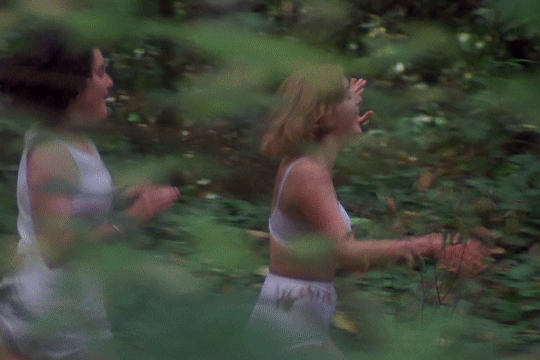



Kate Winslet & Melanie Lynskey
Heavenly Creatures (1994) dir. Peter Jackson
#heavenly creatures#kate winslet#melanie lynskey#heavenly creatures 1994#filmedit#peter jackson#juliet hulme#pauline parker#gif#film#90s#90s movies#worldcinemaedit#fyeahmovies#dailyflicks#moviegifs#filmgifs#cinemapix#new zealand cinema#parker-hulme#tvandfilm#filmtvdaily#userfilm#usersource
2K notes
·
View notes
Text
From now on I'll prob use my ipad for editing cus the quality looks sm better here than any of my other edits tbh anyways umm ye👍🎀
#heavenly creatures#melanie lynskey#kate winslet#pauline parker#juliet hulme#crime#ummmmm#idk how to tag this#underated#underated film#wlw
4 notes
·
View notes
Photo
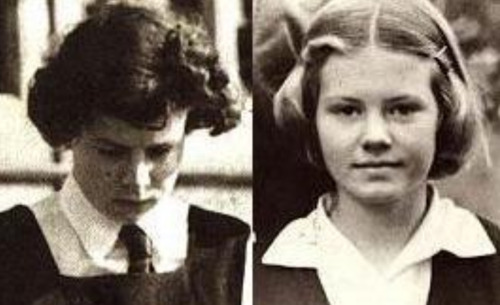
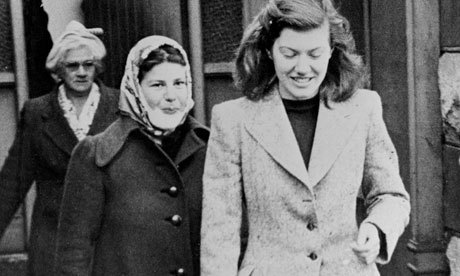
Pauline Parker and Juliet Hulme came from different worlds. Pauline’s father managed a fish shop while her mother, Honora Mary Parker, took in lodgers to make ends meet; Juliet’s father was a famous British physicist and her mother, a marriage counsellor. Nevertheless, the two young girl were drawn to each other, perhaps due to their similarities in temperament.
Pauline’s education had not been of the highest of standard, but she was a gifted and imaginative writer, and Juliet was deeply sensitive to the point of being psychologically fragile. Over time, what started out as a friendship became much, much more. The two adolescent girls - Pauline was 15, Juliet 16 - began to explore their sexuality with one another. As Juliet would later say, when they were together it was “better than heaven.”
Unfortunately events were conspiring to bring their relationship to an end.
Juliet’s mother divorced her father, and the young girl was deeply traumatized when she caught her mother in bed with a new man. Soon after, her father announced that he was returning to Britain to take up a new post, and Juliet would be sent to live with relatives in South Africa, where it was hoped her health would improve.
Both girls were devastated at the idea of being separated, but Honora Parker made no secret of her relief. She had grown suspicious of their friendship and the strange hold Juliet ad over her daughter, so when Pauline begged to be allowed to go to South Africa too, she refused. In doing so, she became the focus of the girls’ frustration and anger.
If Pauline was orphaned, they reasoned, there would be no-one to stop her joining Juliet in South Africa. As Pauline wrote in her diary on February 13, 1954, “Why could mother not die? Dozens of people are dying, thousands are dying every day. So why not mother and father too?” It would be one of the many diary entries that eventually helped convict her.
On June 22, not long before Juliet was due to leave, Honora Parker took the girls to Victoria Park for tea and cakes. After the treat, the three strolled in the park and when they reached a secluded spot, Mrs. Parker bent over to pick up a stone that had attracted her attention. As she did, a stocking loaded with a brick crashed into her skull. Over and over, the teenage girls took it in turn to beat Pauline’s mother to death. And when they were sure that she was gone, they ran back to the tea kiosk, screaming for help and crying, “Mummy’s been hurt!”
Police found the stocking and brick close by Honora Parker’s body and the two girls were arrested. Both admitted that they had helped in the grisly task of killing Mrs. Parker and both were found equally responsible. After a sensational trial unlike any New Zealand had ever seen, the two girls were found guilty of murder on August 29, 1954, and - in view of their ages - sentenced to five years in prison each with the added condition that when they were released they could never see each other again.
104 notes
·
View notes
Text
One of my sisters hacked her disordered eating by becoming a #foodie and I think it makes her insane when I visit because she wants to show me all these hole-in-the-wall gourmand hotspots and I will only eat the equivalent of cold cuts, Uncrustables, and string cheese. We are both autistic but in very different ways, just like we are both gay but she is high femme and I am very much stone butch lol
#Common interests include Shakespeare weird all-girls' boarding schools at the turn of the century architecture & the Parker-Hulme murder#So you know. The gay stuff
18 notes
·
View notes
Text
‘So Brilliantly Clever’ By Peter Graham has just made me fall so deeply in love with Hilda Hulme/Perry. Heavenly Creatures was an amazing movie but I would love other dramatization of the case focused on the Hulmes. They’re one of the most interesting families I’ve ever come across, every member is so memorable and compelling and fucked up. Apart from Jonty but he was like 9 when the Hulmes were famous and by the time he was old enough they were out of the spotlight so no one really knows anything about him.
3 notes
·
View notes
Text
I so desperately need a show about a women's prison set in New Zealand. Like begging on my knees fr.
#imagine Judith Collins playing herself as the minister of corrections 😍#or one set in the 1950s based off Pauline Parker & Juliet Hulme 😍#it would be so good ugh
3 notes
·
View notes
Text
The Parker-Hulme case is my favorite True Crime story of all time. Probably because it's chillingly relatable.
Two mentally ill/depressed and isolated girls, one exceedingly neglected, have an obsessive (and speculatively homo-erotic/romantic) friendship wherein they get too locked in a fantasy world. They create their own religion and write letters to each other from the POV of their characters. They even went by different names. When their parents plan to separate them, the girls kill one of their mothers.
It's kind of one of those; "thaaaaaat might’ve been a possible timeline for me if Kirra/Apollo had a few more ounces of control of our system" vibes.
They also talked about "the fourth world" like K/A and I talked about "The other plane." 😬
Oh, and one ends up as a famous mystery writer.
Go figure.
-Rune 💠
#parker-hulme case#juliet hulme#pauline parker#pauline rieper#anne perry#4am thoughts#it probably wouldve been apollo's mother tho#he hated her lol
0 notes
Text
BIRTH CHART ANALYSIS: Anne Perry (Juliet Hulme)
More about this case on my last post HERE❕



WHO TF IS ANNE PERRY? Juliet Hulme's secret identity as crime novelist Anne Perry was discovered in 1994. Anne Perry and her best friend Pauline Parker killed Paulines mother with a brick and by choking her when they were just 15 & 16 years old. I have a post about them HERE. Perry says she never felt any sorrow over the death of Parker's mother because she hardly knew the woman. She blames her participation in the murder on being ill and on drugs. She also blames it on her former best friend Pauline. Today she is 84 years old.
North Node conjunct Mercury: It was a part of her life path to become an author. She handled a lot of her issues by writing. Made a living out of her memories & thoughts. Her dream from a young age was to become a published writer which she did. Mercury is also her MC ruler so she was destined to have a great career.
Waldemath Lilith conjunct Sun: She experienced a lot of Lilith related issues. She was outcasted(her own fault). It said in Paulines diary they had a sexual relationship which was not well recieved in 1954. She had a lot of Lilith traits to her personality like refusing to be silenced, refusing to let outcasting get to her and being obsessive in relationships. She also talked back to her male french teacher (This was 1954 and she was a 15 y/o girl talking back to a grown man) Waldemath Lilith is one of the most intense Liliths in my opinion. Lilith represents the dark feminine and unfortunately a very nasty side of that dark feminine.
Lucifer in the 1st house: Asteroid Lucifer is a lot about pride. She had such a damaged sense of pride that even to this day she have a hard time admitting what she did was wrong and is blaming other people for her crime. She holds her head high and smiles while talking about the murder. When asked if she ever thought about her victim she said "No. She was somebody I barely knew."
Dejanira conjunct Midheaven: Made a career out of how she victimized another human. A lot of her other books also have the theme of victimhood and abuse. She was later exposed very publicly.
Adonis conjunct Mars: She is very charming and good looking and always was. In her teenyears she was snobby and very arrogant. She was always very interested in status.
Lilith in Capricorn in the 2nd house: The 2nd house rules our morals and values, so an asteroid like Lilith can create some issues here. Anne had no problems with making money out of her crimes. She also had no issues with blaming the murder on her friend. Lilith in Capricorn shows how career oriented she is and how she always cared about status and money, even from a young age.
Ruler of the 8th in the 2nd house: She made A LOT of money out of killing someone. Not only the money she got from the book but also the movie became a success.
Jupiter in the 3rd house: She is very good at writing and communicating. Very manipulative and intelligent. Communication is definitely her strength. She also have a way of speaking that makes you listen to what she says.
Neptune conjunct Midheaven: Known for her great sense of fantasy when it comes to her other books (I hope shes not talking about herself in those too💀since her books are all crime novels). Also known now for lying. Neptune is also her 4th house ruler and shes known for what she did when she was still considered a kid.
Neptune conjunct Mars: She easily dissasociates and puts blame on others. She was extremely delusional and used to fantasize A LOT, i mean common she had her own world that she called ”The 4th world” She tried to say she felt forced to kill but former schoolmates were quick to come forward with how they remembered Juliet Hulme as a girl who didn't do anything she didn't want to. She was the boss in that relationship. She comes across as nicer than she really is.
Asteroid Lilith in the 3rd house: She wrote very taboo crime novels. She had a lot of issues with fantasy and was extremely delusional. Constantly creating fantasies around herself. She made up a world called ”The 4th world”. She had a very disturbing mind cracking jokes about the murder during trial. Her mind was fixated on having someone to control.
Venus conjunct Ascendant: Last but not least. Doesnt Venus 1st housers just seem to be so…blessed? Its like everything works out perfectly for them. And lets be honest if she was ugly people would see her as a monster for what she did. This is said about her: ”Juliet Hulme, daughter of a prominent English couple, came to New Zealand as a young girl when her father was recruited for a university position in Christchurch. Her lack of social skills did not stop the physically striking Juliet from making an impression on her classmates, albeit it, for the most part, a negative impression. ” She was born to rich parents and she is now rich because of her books(because of her murder).
ASTEROID NUMBERS: 1930, 16, 1181, 2101, h58, h21, h12, h13, 157, 7066, 3
In this video she talks about it:
youtube
©️ 2023 Zeldas Notes
#astro notes#astrology#astro observations#astronotes#lilith#birth chart readings#truecrime#lilith aspects#asteroids#Youtube
221 notes
·
View notes
Photo
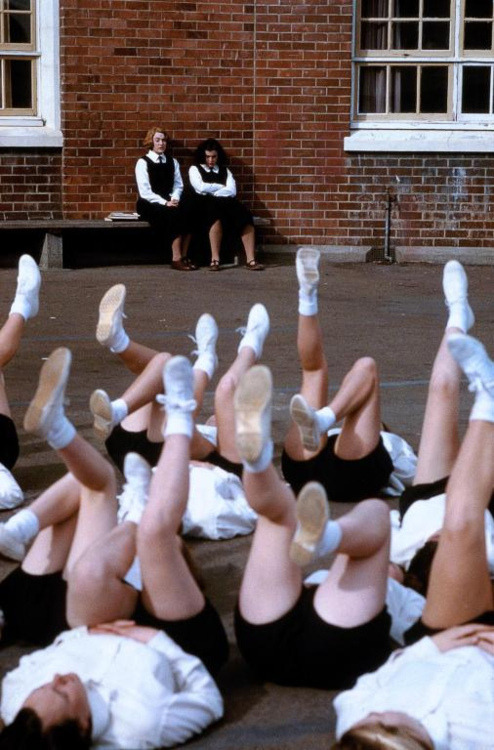
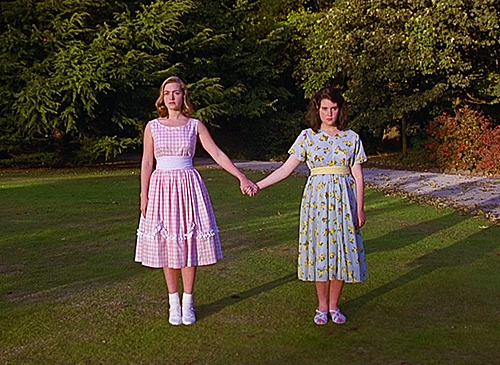
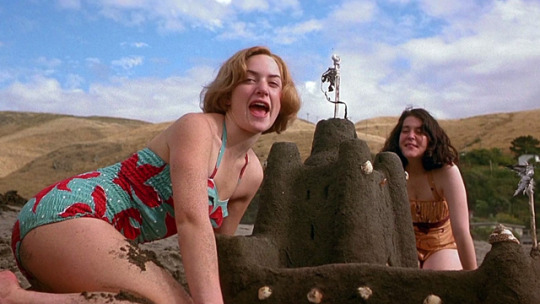
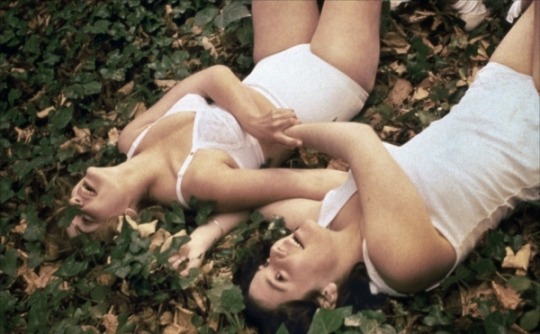
The Parker–Hulme murder case began in the city of Christchurch, South Island, New Zealand, on 22 June 1954, when Honorah Rieper was killed by her teenage daughter, Pauline Parker, and Pauline's close friend, Juliet Hulme. Parker was 16 at the time, while Hulme was 15.
The murder has inspired plays, novels, non-fiction books, and films including Peter Jackson's 1994 film Heavenly Creatures starring Kate Winslet and Melanie Lynskey in their first roles in a major motion picture.
78 notes
·
View notes
Text
quite genuinely i think the only two endings that were ever possible for paul and john were starting the beatles or just a straight up parker-hulme situation. like it was one or the other we just got the good one.
7 notes
·
View notes
Photo



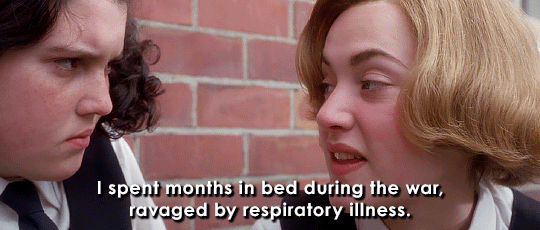

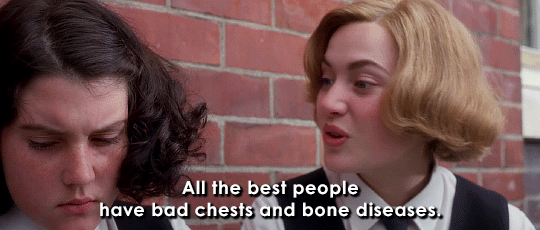
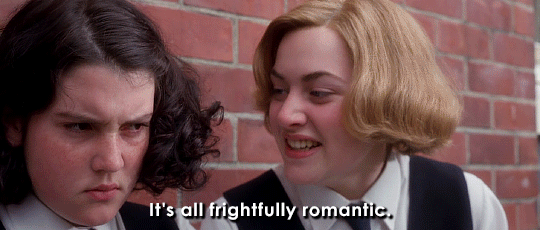
Kate Winslet & Melanie Lynskey
Heavenly Creatures (1994) dir. Peter Jackson
#heavenly creatures#kate winslet#melanie lynskey#heavenly creatures 1994#filmedit#peter jackson#juliet hulme#pauline parker#gif#film#90s#90s movies#worldcinemaedit#fyeahmovies#dailyflicks#moviegifs#filmgifs#cinemapix#1990s#90s films#new zealand cinema#parker-hulme#filmtvdaily#tvandfilm#usersource#ladiesofcinema#userfilm#ladiesblr
749 notes
·
View notes
Text

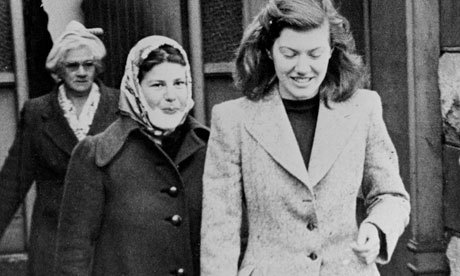
Pauline Parker and Juliet Hulme came from different worlds. Pauline’s father managed a fish shop while her mother, Honora Mary Parker, took in lodgers to make ends meet; Juliet’s father was a famous British physicist and her mother a marriage counsellor. Nevertheless, the two young girl were drawn to each other, perhaps due to their similarities in temperament.
Pauline’s education had not been of the highest of standard, but she was a gifted and imaginative writer, and Juliet was deeply sensitive to the point of being psychologically fragile. Over time, what started out as a friendhip became much, much more. The two adolescent girls - Pauline was 15, Juliet 16 - began to explore their sexuality with one another. As Juliet would later say, when they were together it was “better than heaven.”
Unfortunately events were conspiring to bring their relationship to an end. Juliet’s mother divorced her father, and the young girl was deeply traumatized when she caught her mother in bed with a new man. Soon after, her father announced that he was returning to Britain to take up a new post, and Juliet would be sent to live with relatives in South Africa where it was hoped her health would improve.
Both girls were devastated at the idea of being separated, but Honora Parker made no secret of her relief. She had grown suspicious of their friendship and the strange hold Juliet had over her daughter, so when Pauline begged to be allowed to go to South Africa too, she refused. In doing so she became the focus of the girls’ frustration and anger.
If Pauline was orphaned, they reasoned, there would be no-one to stop her joining Juliet in South Africa. As Pauline wrote in her diary on February 13, 1954, “Why could mother not die? Dozens of people are dying, thousands are dying every day. So why not mother and father too?” It would be one of the many diary entries that eventually helped convict her.
On June 22, not long before Juliet was due to leave, Honora Parker took the girls to Victoria Park for tea and cakes. After the treat, the three strolled in the park and when they reached a secluded spot, Mrs Parker bent over to pick up a stone that had attracted her attention. As she did, a stocking loaded with a brick crashed into her skull. Over and over, the teenage girls took it in turn to beat Pauline’s mother to death. And when they were sure that she was gone, they ran back to the tea kiosk, screaming for help and crying, “Mummy’s been hurt!”
Police found the stocking and brick close by Honora Parker’s body and the two girls were arrested. Both admitted that they had helped in the grisly task of killing Mrs. Parker and both were found equally responsible. After a sensational trial unlike any New Zealand had ever seen, the two girls were found guilty of murder on August 29, 1954, and - in view of their ages - sentenced to five years in prison each with the added condition that when they were released they could never see each other again.
52 notes
·
View notes
Text
BLOGTOBER 10/28/2023: BAD RONALD
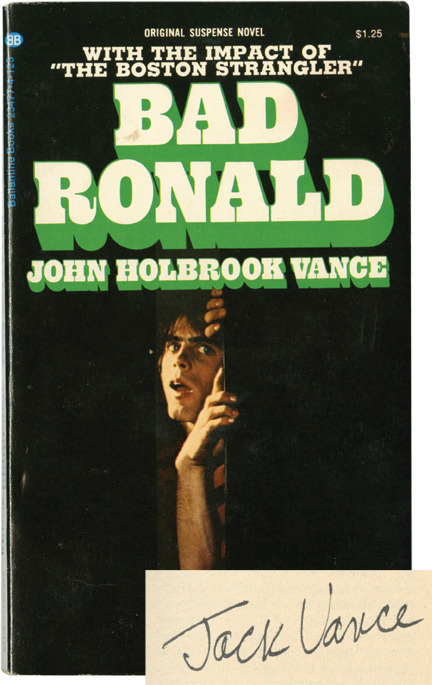
"The bathroom--it's perfect! You'll be able to live in decency and cleanliness...and no one will know."
This is so much fun. A made-for-TV classic adapted from the above Jack Vance novel, BAD RONALD stars Scott Jacoby (who would play the teen magician in THE LITTLE GIRL WHO LIVES DOWN THE LANE a few years later) as a nerdy outcast who accidentally murders a snotty little girl for making fun of him. His overbearing mother secrets him away within the walls of their house, where he's meant to live until some undefined future date when it's safe to come out. This day will never arrive, as his mother dies and leaves him all alone--that is, until Dabney Coleman moves his cute teenage daughters into Ronald's house. He decides to make one of them his bride, absorbing her into the fantasy world he has created in his mind.

I really wish the internet had more pictures of Ronald's deco-y fantasy art, which is pretty interesting! Genre film luminary Kim Newman suggests that novelist Jack Vance could possibly have drawn on the Parker-Hulme murder case for inspiration, which later provided the basis for Peter Jackson's HEAVENLY CREATURES. I can't vouch for exactly how likely that could be, but it's an intriguing notion. In any case, Ronald's outsider art career adds a cool splash of color to this weird, brisk little movie. I dug it.
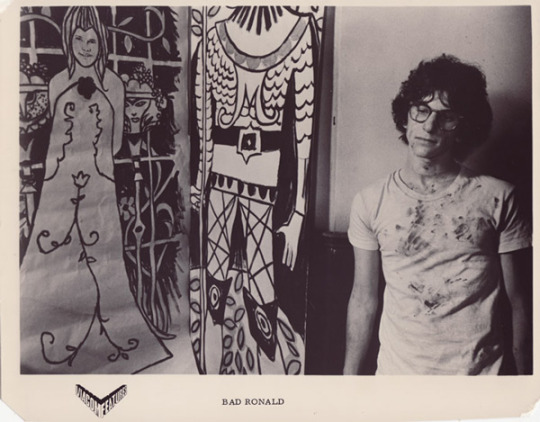
Oh but PS if you're a certain kind of person you may have noticed that there is a new unscripted Lifetime series called Phrogger: Hider In My House, and if you've been on the fence about watching it, I can at least tell you that the first episode features one of the weirdest stories I have ever heard.
#blogtober#2023#horror#thriller#drama#made for tv#bad ronald#scott jacoby#dabney coleman#jack vance#adaptation#phrogging#psychological thriller
9 notes
·
View notes
Text
been thinking about how so much of the coverage of the slenderman stabbing took the idea that no adolescent girls had ever done such a thing before for granted, which is wild because that's definitely not the case. just off the top of my head the Parker–Hulme murder in Christchurch, NZ has a lot in common with the slenderman stabbing: girls deeply bonded by shared delusions, an increasingly inability to differentiate fact from fiction, a shocking act of violence committed because of a desperate belief in an outcome that any outsider could see was insane. this wasn't obscure: juliet hulme grew up to be a popular mystery author using the pen name ann perry, and the resulting scandal when her identity was revealed overlapped with a movie directed by peter jackson and launched melanie lynskey and kate winselt to stardom. all of this was big news in the 1990s and continues to have a cultural legacy, albeit a more niche one these days.
but the murder in Christchurch happened in the 1950s, and the internet did not exist in the 1950s. children have been exchanging scary stories since most anyone can remember, and the telling of urban legends have always been a big part of american youth culture. hell, we had these books about aliens and ghosts that presented their subject matter as real that scared the shit out of me as a kid and led to a phobia of aliens that lasted well into my adulthood and long after i had the capacity to understand it was horseshit. i'm hardly the only one to have an experience like this, and the majority of us are fine and not at all traumatized because we read some spooky stories in the third grade. obviously, parents should be paying attention to how their children spend their time and what they're consuming both in real life and online, but it should have been obvious a lot more was going on here than "child has unsupervised access to scary stories the internet."
i still see this shit play out to a lesser degree, usually in the form of the exhausted parents of young children panicking about some five nights at freddy's knockoff or reading too much into shit like the spiderman-elsa videos. there are dangers here, but it's not satanists trying to recruit your kid or predators trying to communicate through cartoon youtube videos: it's companies trying to take advantage of kid's mushy brains to keep them watching and selling them shit. it's unscrupulous influence taking advantage of their audience's naiveté for easy cash and fame. and it's an entire online ecosystem dedicated to preying on your fears as a parent, getting you to click and share without thinking things through because their content is designed to exploit your legitimate fears and natural protective instincts. this isn't new either: much of the slenderman stabbing coverage came from traditional media where people knew damn well what they were doing because they'd pulled all the same tricks during other moral panics for decades.
but the internet has made it possible for any mercenary creep with enough technical knowledge and ambition to make a lot of money exploiting people's fears by telling blatant lies. obviously, children are easy targets, but there are actual laws providing some protections for that demographic, and more cautious grifters choose to go after vulnerable adults like the parents of small children. this is all just one aspect of a much larger problem, but it's always worth considering who is trying to sell our fears back to us and what they have to gain from it, and it's been on my mind a lot lately
6 notes
·
View notes
Text
Reading List for 2023
I have settled on my reading list for the year and my reading goal. The books below encompass the books I will choose from (I don't expect to finish all of them). My goal is to read 52 books this year, not including JAFF. I will probably return to this list several times just to discuss how it is going.
Nonfiction
This Changes Everything: Capitalism vs. the Climate by Naomi Klein (2014)
Zami: A New Spelling of My Name by Audre Lorde (1982)
Warrior Poet: A Biography of Audre Lorde by Alexis de Veaux (2006)
The Year of Magical Thinking by Joan Didion (2007)
Blue Nights by Joan Didion (2011)
Let Me Tell You What I Mean by Joan Didion (2021)
A House of My Own: Stories from My Life by Sandra Cisneros (2015)
A Taste of Power: A Black Woman’s Story by Elaine Brown (1992)
Some of Us Did Not Die by June Jordan (2002)
On Call: Political Essays by June Jordan (1998)
The Cultural Politics of Emotion by Sara Ahmed (2004)
Upstream: Selected Essays by Mary Oliver (2016)
Funny in Farsi: A Memoir of Growing Up Iranian in America by Firoozeh Dumas (2004)
The Choice: Embrace the Possible by Edith Eger (2017)
Crying in H Mart by Michelle Zauner (2021)
Ohitika Woman by Mary Brave Bird (1994)
And Our Faces, My Heart, Brief as Photos by John Berger (1991)
Time is the Thing a Body Moves Through by T Fleischmann (2019)
Ex Libris by Anne Fadiman (1998)
The Care Manifesto by The Care Collective (2020)
Dancing at the Edge of the World by Ursula K. Le Guin (1997)
Fiction
A Book of Common Prayer by Joan Didion (1977)
Colorless Tsukuru Tazaki and His Years of Pilgrimage by Haruki Murakami (2014)
On Earth We’re Briefly Gorgeous by Ocean Vuong (2019)
The Story of a New Name by Elena Ferrante (2013)
Those Who Leave and Those Who Stay by Elena Ferrante (2014)
The Story of the Lost Child by Elena Ferrante (2015)
The Lost Daughter by Elena Ferrante (2008)
The Bone People by Keri Hulme (1986)
Gilead by Marilynne Robinson (2006)
Sense and Sensibility by Jane Austen (1811)
Mansfield Park by Jane Austen (1814)
Northanger Abbey by Jane Austen (1817)
Atonement by Ian McEwan (2003)
The Sentence by Louise Erdrich (2021)
The Dictionary of Lost Words by Pip Williams (2021)
The Fellowship of the Ring by J.R.R. Tolkien (1954)
The Two Towers by J.R.R. Tolkien (1954)
The Return of the King by J.R.R. Tolkien (1955)
Babel by R.F. Kuang (2022)
Moonflower Murders by Anthony Horowitz (2020)
The Word is Murder by Anthony Horowitz (2018)
The Unlikely Pilgrimage of Harold Fry by Rachel Joyce (2013)
Poetry
Time is a Mother by Ocean Vuong (2022)
Blue Iris: Poems and Essays by Mary Oliver (2006)
Work
The Hidden Inequities of Labor-Based Contract Grading by Ellen Carillo (2021)
Queer Silence: On Disability and Rhetorical Absence by J. Logan Smilges (2022)
Our Body of Work ed. by Melissa Nicolas and Anna Sicari (2022)
Teachers as Cultural Workers by Paulo Freire (2005)
Living a Feminist Life by Sara Ahmed (2017)
The Cultural Politics of Emotion by Sara Ahmed (2004)
The Vulnerable Observer by Ruth Behar (1997)
Getting Lost by Patti Lather (2007)
Race, Rhetoric, and Research Methods by Alexandria Lockett, Iris D. Ruiz , James Chase Sanchez, and Christopher Carter (2021)
Opening Spaces by Patricia Sullivan and James Porter (1997)
Decolonizing Methodologies by Linda Tuhiwai Smith (2021)
Counterstory by Aja Y. Martinez (2020)
The Courage to Teach by Parker Palmer (2017)
We Make the Road by Walking by Paulo Freire and Myles Horton
Writing with Power by Peter Elbow (1998)
Writing without Teachers by Peter Elbow (1998)
The Anti-Racist Writing Workshop by Felicia Chavez (2021)
26 notes
·
View notes
Text
dont say you like the anime (heavenly creatures) if you haven't read the manga (parker-hulme murder case)
8 notes
·
View notes